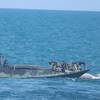On 1 July the Netherlands replaced Ireland as head of the European Union (EU) for the next six months. The Netherlands will be the first country to assume the Presidency of the European Union since its enlargement to a total of 25 member states. What is more, the membership of both the European Parliament and the European Commission will change during the Dutch Presidency. The Dutch will probably also have to deal with the signing of the new European Constitution.
These significant changes to both the people and the structure involved in running Europe are effectively "handicaps" which could potentially impede, or at least slow down, some of the legislative plans of the Dutch Presidency. For the newly-elected European Parliament will not be fully constituted to take up the functions of co-decision until the autumn, while key Commissioners have already left or are planning to leave during the final months of their tenure.
One of the key challenges that the Dutch will need to address is the thorny question of Turkish membership of the EU. And as the Irish did, the Dutch have identified the reviving of the EU economy as a main priority for their presidency. Politically far more sensitive on the Dutch agenda is the issue of financing the EU's budget from 2007 to 2013, which is expected to be even more difficult than reaching agreement on the EU Constitution.
Maritime Transport Priorities
The Dutch Presidency has set a number of priorities that will influence the position and development of EU maritime transport over the next six months. There are, notably, short sea shipping, inland navigation and safety/security.
The Dutch Presidency wants to promote short sea shipping as a fully-fledged alternative to transport by land. Important in this regard is reducing the administrative burdens, such as customs procedures and paperwork. In addition, the Presidency wants to promote the creation and use of "Motorways of the Sea", whilst assuring a high level of service and facilities. By achieving this, short sea shipping, through the "Motorways of the Sea", will have a powerful marketing tool at its disposal to compete with land transport.
The Presidency will also examine the ways in which inland shipping can be enhanced and further utilised. The Netherlands will make every effort to deal rapidly with the proposal for a Directive concerning the establishment of a River Information Service [RIS]. This information system enables all of the transport chain, hauliers, suppliers and inland shipping firms, to exchange all kinds of data between themselves.
The Dutch will also implement further action to enhance the security and safety of ports and ships. The worldwide ISPS Code was developed in record time and was brought into force on 1 July. Therefore all European ports must now meet all the safety requirements set out in the Code. During its term of Presidency, the Netherlands will actively investigate whether the rapid introduction of the ISPS Code will lead to irregularities that require retrospective harmonisation. It will also consider whether the measures are too rigid for certain ships and port facilities. The Dutch presidency will also try to adopt at first reading the Directive on port security.
The European Commission is expected to publish a new Communication on maritime safety issues. This legislative package will be called Maritime Safety Package 2004 (previously referred to as Erika III), and will follow on from the so-called Erika I and Erika II packages. The focus of this new package will be i.a. to review how port state authorities control legislation, to enforce entry bans on ships that are below EU standards, and to propose new measures for investigating maritime accidents.
Two dates have been set up for the Transport Council meetings, specifically October 7, 2004 and December 9, 2004.
(Source: Intertanko)
Featured videos

Tracking Foreign Vessels Working in the U.S. Jones Act Market

Inside the Electrified Truckable Tug

Inmarsat Enhances Service to Drive Digitalization
Subscribe for
Maritime Reporter E-News
Maritime Reporter E-News is the maritime industry's largest circulation and most authoritative ENews Service, delivered to your Email five times per week









